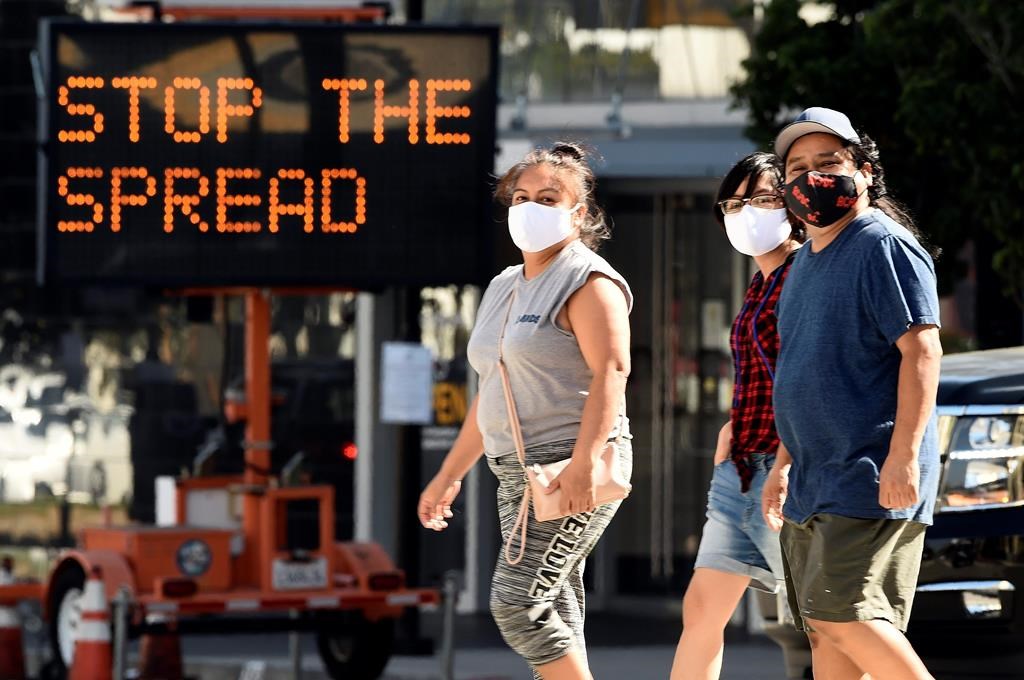The coronavirus is “extraordinarily widespread” in the United States and the growing number of infections, including into rural areas, is raising the prospect that some may need to wear masks at home.

Dr. Deborah Birx, the head of the White House coronavirus task force, made that case in an interview with CNN’s State of the Union over the weekend and pointed to the growing risks posed in multigenerational households as the virus continues to rampage through the country.
The U.S. remains the global epicentre of the outbreak, with new daily cases continuing to rise in dozens of states and into more rural areas as well.
“It is extraordinarily widespread. It’s into the rural as equal urban areas … to everybody who lives in a rural area, you are not immune or protected from this virus,” Birx said in the interview.
“If you’re in multi-generational households, and there’s an outbreak in your rural area or in your city, you need to really consider wearing a mask at home, assuming that you’re positive, if you have individuals in your households with co-morbidities.”
READ MORE: ‘This is not the time to be selfish’: How face masks became a mirror of humanity amid COVID-19
Data from the Pew Research Centre suggests roughly 20 per cent of Americans — or about 64 million people — live in multigenerational households.
However, such living arrangements pose a challenge for physical distancing — still one of the most important ways to reduce the chance of the virus spreading.

Get weekly health news
One study from the University of Oxford suggests part of the reason why Italy’s coronavirus crisis was so deadly earlier this year is that so many households there are multigenerational, with younger people going out to work and bringing the virus back home to infect older relatives.
Roughly 6.3 per cent of Canadians — or 2.2 million people — live in multigenerational households.
READ MORE: When coronavirus comes home: How to take care of an infected person
Coronavirus cases around the world are spiking, with a jump of one million new cases in just four days, bringing the total number of global infections to more than 18 million.
In all, 689,908 have died from the virus.
While the virus originated in China and saw explosive early growth there before moving around the world, the U.S. is now the global hot spot for cases amid continuing criticisms that both federal and state governments are failing to take the kinds of concrete actions needed to contain the spread.
Those include policies touted by public health leaders around the rest of the world such as mandating the wearing of masks, restricting social activities through lockdowns and curfews, and pouring money into intensive contact tracing to track down any potential exposures to the highly contagious virus.
READ MORE: Does wearing a face mask pose any health risks? Not for most people
The Public Health Agency of Canada officially recommends wearing a non-medical (cloth) mask or other face-covering anytime a person cannot physically distance from others.
Across the country, that has prompted a swell of municipal bylaws and orders building on that recommendation by mandating the wearing of masks in indoor places.
Those include grocery stores, retail shops, restaurants and this fall, most high schools in jurisdictions where they are reopening.
But so far, public health officials have stopped short of recommending people wear masks in their homes unless they are either caring for an infected person in the residence or are themselves infected and living with another individual.










Comments